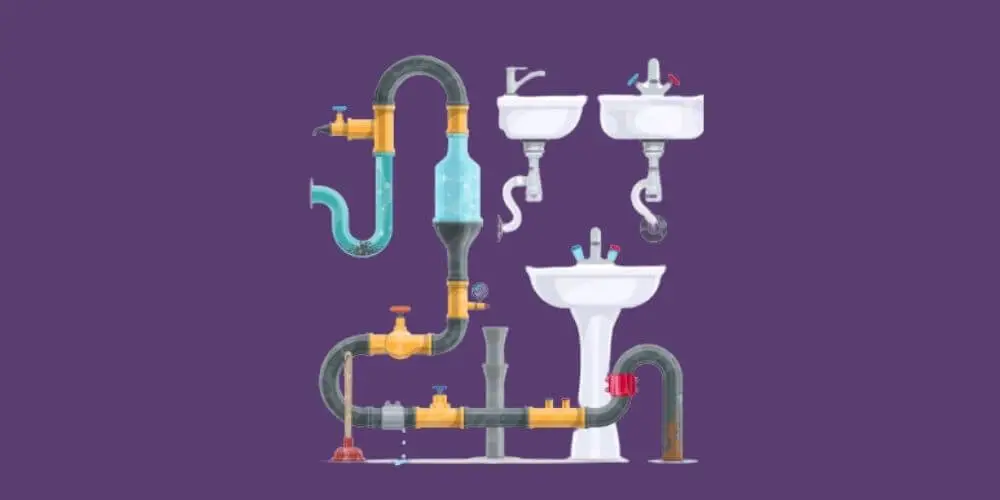If you’ve ever turned on your faucet and tasted metal, you know how unpleasant that can be. While metallic water is often harmless, it’s still a sign that there’s something wrong with your plumbing.

So yes, if your water tastes like metal, it’s likely that you have a high mineral content. While this isn’t harmful, it can make your water unappetizing.
In this blog post, we’ll tell you what to do if the water tastes like metal, and how to fix the problem. Keep reading to learn more.
There are several things you can do to reduce the metallic taste, including using a filter or distilling the water. You can also try cooking with bottled or filtered water to avoid any metallic flavors. If your water tastes like metal, it’s likely you have high mineral content. While this isn’t harmful, it can make your water unappetizing
There are several things you can do to reduce the metallic taste in your water, including using a filter or distilling the water. You can also try cooking with bottled or filtered water to avoid any metallic flavors.
If you’ve ever turned on your faucet and tasted metal, you know how unpleasant that can be. While metallic water is often harmless, it’s still a sign that there’s something wrong with your plumbing.
Is it safe to drink water that tastes metallic?
Metallic tastes are usually not harmful to human health. The taste will usually go away with time, as will the particles that cause it. With that said, some of the minerals that produce that metallic taste might be dangerous if taken in large quantities on a regular basis.
But don’t worry – there are steps you can take to protect yourself and your family from harmful metals like lead and copper.
Let’s look at some of the steps you can take to protect yourself, your family and improve the taste of your water.
- First, try keeping an open container of water in the refrigerator overnight. This will help reduce any chlorine or sulfur tastes that may be present.
- Second, you can use a water filter designed to reduce the amount of chlorine and sulfur in your tap water.
- Third, if you find that your water has a major metallic taste, there are products designed specifically to treat the problem. You could also try boiling or filtering your tap water.
- Fourth, you might want to install a whole house water purification system. This system will remove contaminants like lead and copper, which can produce metallic tastes in your water
- Fifth, if you think the problem is with the pipes in your home or building, you could consult a professional to find out what’s going on.
What does it mean if the water tastes like metal?
As mentioned, a metallic taste in your drinking water may be due to high iron, manganese, or zinc levels. These minerals can produce an unpleasant flavor and color when they appear in large quantities.
In some instances, you may smell a rotten egg smell coming from the tap, especially after the water has been sitting in the pipes for an extended period of time. However, this doesn’t always indicate high mineral content – it can also be caused by bacteria buildup or air pollution.
If you notice this, then it’s best to get your water tested before you do anything else.
What is a metallic taste a symptom of?
A metallic taste is a common symptom that can have many different causes. It can be a sign of high mineral levels, faulty plumbing, or even bacteria buildup.
The easiest way to determine what’s causing the metallic taste in your water is by getting a professional opinion. There are a few different factors at play, including the color and consistency of your water.
The color and consistency of your water can help a professional determine what’s going on with your plumbing. If you notice black, dirty-looking water coming from your faucet, then it’s likely that the problem is either mineral buildup or sewage leaks. If your water is pale yellow, then it could be caused by either iron deposits or sulfur.
There are several different factors that can cause a metallic taste in drinking water. It doesn’t always indicate an immediate health concern – but you should definitely take a look at your tap for signs of high mineral levels.
Some of the factors that can cause a metallic taste in water include the following –
Metallic – This is the most common cause of metallic taste in water. It can be caused by naturally-occurring metals like iron, manganese, and zinc
Bacterial – If your tap water smells like rotten eggs or sewage, then there is likely bacteria buildup in your plumbing system. This occurs when the water has been sitting out for an extended period of time.
Sulfur – Sulfur causes a rotten egg smell and, in large quantities, can stain your glassware and cause a metallic taste in your drinking water.
High mineral content – If your tap water smells like chlorine or has a high level of minerals, then it may be due to a lack of filtration storage tanks. This can cause a metallic taste in your water and may lead to staining of fixtures and porcelain.
How do you get rid of metallic taste in water?
There are a few different ways that you can improve the quality of your drinking water. If you notice a strong, persistent smell or color to your tap water, then it may be due to high mineral content
While these minerals can naturally exist in your drinking water, sometimes their levels become too high for comfort. This may be due to the plumbing system in your home or building, poor filtration systems or lack of storage tanks.
If you notice a strong smell coming from your tap water, then it’s best to get it tested as soon as possible. If you’re unable to afford to fix the problem on your own, then you might want to consult with an expert who could recommend a solution that would work specifically for you and your living situation.
Solving your metallic water taste problem
Step 1
Consider purchasing a simple-to-use water filter at home. They can reduce both chlorine and contaminants like lead and arsenic (which also cause bad tasting water), so you might find that your problem is solved if this is the source of the metallic taste. There are lots of different water filter brands available, and choosing one that fits your budget shouldn’t be too difficult.
Step 2
If you don’t already have a filtration system installed in your home, then it’s time to get one set up. You can either hire an expert or do it yourself depending on how comfortable you are with plumbing work. There are plenty of resources online if you want to take a look at some of the products available for purchase.
Step 3
If neither of these solutions works for you, then consider talking with someone about getting city-quality drinking water delivered directly to your tap every day. It sounds extravagant, but if the quality of your tap water is poor enough that you’re experiencing a persistent metallic taste in your water then it’s absolutely worth looking into.
What to do about metallic taste in baby formula?
If you’ve ever made powdered infant formula (or any other baby food for that matter) with either well or city-quality drinking water, then it’s likely you’ve noticed an unpleasant metal aftertaste.
This can be improved by filtering the water before mixing, or by using filtered or bottled water instead of tap or well water.
You may also want to consider mixing the formula in a blender instead of shaking it. This can make all the difference when it comes to getting rid of any metallic taste left in the formula after it’s been prepared.
Final Thoughts
If your tap water tastes like metal, then you may want to consider getting it tested.
This is especially true if the smell or color is strong or noticeable, or if you’re experiencing symptoms like bad breath that could be caused by the metal content in your drinking water.
It’s important to note that some minerals can naturally occur in water, which is why it can sometimes be difficult to pinpoint the true source of the problem.

